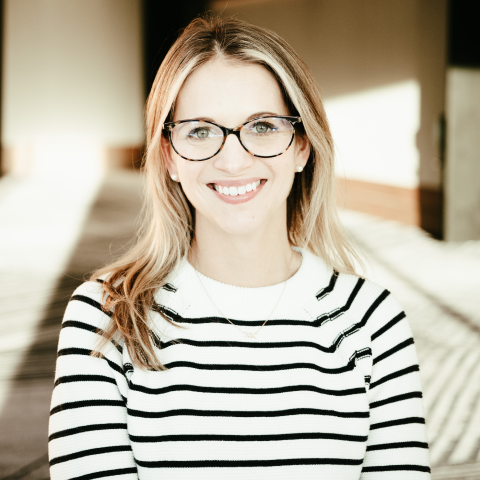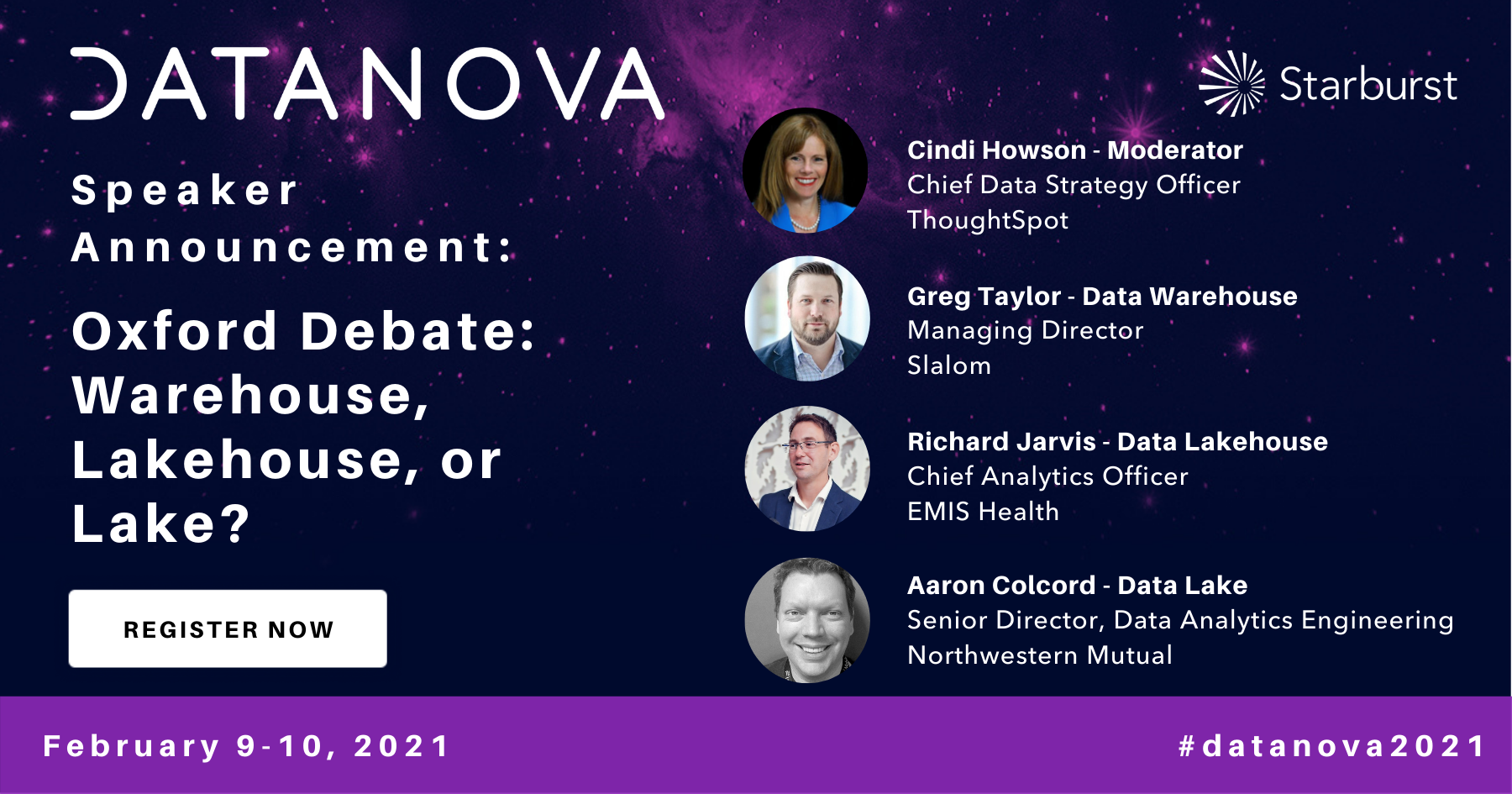Datanova 2021 is going to have plenty of panels and informative content for anyone interested in the future of big data management. We’re also going to have a little fun, in the form of an exciting debate.
As we see it, there are six big reasons to sign up for the conference
, with our exciting keynote speaker being the first. The second one? A panel of experts and audience attendees are going to decide, once and for all, the future of data storage.
Which format is going to prevail?
- Data Warehouse
- Data Lake
- Lakehouse
Moderating the panel will be Cindi Howson, Chief Data Strategy Officer at ThoughtSpot, with Greg Taylor, Managing Director at Slalom taking the data warehouse stance, Richard Jarvis, Chief Analytics Officer at EMIS Health vouching for data lakehouses, and Aaron Colcord, Senior Director of Data Analytics Engineering at Northwestern Mutual standing behind data lakes.
Obviously there are advantages and disadvantages to each storage medium. The traditional data warehouse gives analysts one place to go to find data for analytics. Security can be applied in one spot, instead of bolted onto numerous systems, and you get fast performance. The downside? These warehouses are costly to build and maintain. Expensive ETL pipelines are needed for data migration, and storage and compute are linked.
The data lake isn’t perfect, either, whether it’s on-prem with a Hadoop cluster or other private cloud infrastructure, or in one of the major public clouds, such as Google Cloud, Microsoft Azure, or AWS. The data lake will bring your costs down, relative to the traditional warehouse, but the solutions typically used to access data in the data lakes are slow and unreliable. The lake isn’t one uniform body, so data often remains federated. The new lakehouse model purports to offer the best of both worlds. But can it deliver on that promise without creating new problems?
You probably have your own opinions on this debate. Our panel of experts certainly does. In this session, attendees will vote at the start for the format they believe will win in the long run. Then each one of our experts will argue on behalf of one of the three mediums, and debate back and forth. Finally, at the end, you’ll vote again to see which medium wins.
Register today, or if that’s not compelling enough, sign up to catch our exciting keynote speaker, Bill Nye, or attend one of our many other panels.







